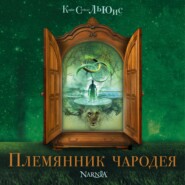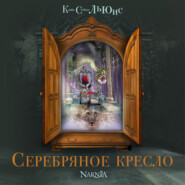По всем вопросам обращайтесь на: info@litportal.ru
(©) 2003-2025.
✖
Collected Letters Volume Three: Narnia, Cambridge and Joy 1950–1963
Настройки чтения
Размер шрифта
Высота строк
Поля
I was talking nonsense when we last discussed this matter: I hadn’t really grasped the point that Man is the true Temple. That is a splendid bit on p. 76
(#ulink_1c8efc03-e759-58e6-9ffa-5cec3b966530) about the true sense of ‘it is finished’-the sword ‘finished’ when its life as a sword can begin)
(#ulink_18670df2-c3d8-50cb-9218-1a6ad0c90e54) How did you think of it? Why did all the rest of us non And the explanation on p. 26 of why the Bride is never mentioned, is brilliant.
(#ulink_5f05fc81-32f8-5c79-b30a-138c1f6c3767) Indeed, I’ll say it is clever-why should we acquiesce in that word’s sliding into a contemptuous meaning. And many, many thanks for St. Bernard’s conception of the Palm Sunday procession.
(#ulink_a5934305-ec5b-50cc-9138-8c66fb1f6c32) And the daring use of larval at the bottom of p. 45 is a complete success: I wanted to clap my hands when I came to it.
(#ulink_8549d701-c41d-5769-9aa8-4bcfd03892bc)
Now for a few tiny flaws, or what I think to be such.
P. 3. ‘Expectation, therefore, is a specifically human exercise.’
(#ulink_e025b40d-ffb4-5824-bd4b-91c55047e75c) Yes, in the peculiar sense you give it of ex-spectation. But you haven’t explained that yet, have you? Won’t the reader take it in the current sense of
(#ulink_181366ec-bfc8-5ba9-9c8f-01f316d92d62) and say that ‘expectation’, far from being specifically human, is seen at its v. maximum in a dog waiting to be taken for a walk or to have a ball thrown for it?
P. 5. at top. Basis or foundation wd. for many reasons be a better word than fundament.
(#ulink_e85a7d9d-c29b-58d3-a243-3c0f90890daf)
P 5 later. Oh, oh why should an attitude almost impossible to a Pagan be called ‘neo-Paganism’?
(#ulink_7a15e883-84fe-5bb8-b775-6dd5bd49a308) You know that no Pagan, bless him, wd. ever have dreamed of thinking the sky belonged to Man. They had their faults, but that is just the sort of sin they never committed. They had too much αίδώσ,
(#ulink_7e9c864c-8da3-5d4f-a360-bc93ecb47668) and δειδαιμονα,
(#ulink_fb19968b-ce5e-53a0-a49a-c8c49e81ea35) and all that. You are falling into the common error of equating the post-Christian with the pre-Christian. They are as different as an unmarried girl is from a woman who has deserted her husband.
P. 44. Here I’m not sure, but, as the barristers say, I ‘put it to you.’ Can we take χóσμον
(#ulink_ee65ebc3-49b3-500c-ac9e-0bc6031a6f97) to mean Universe (as dist. from Earth) in view of other Johannine uses of it? But you are so often right that I dare say you will convince me on this point too.
Anyway, it is a lovely little book. I am very much in your debt. All blessings.
Yours sincerely
C. S. Lewis
TO CORBIN SCOTT CARNELL (W):
(#ulink_1979cbd6-0855-5b3a-94db-1b85e6344b9e)
Magdalen College
Oxford
5/4/53
Dear Mr. Carnell
I am myself a little uneasy about the question you raise:
(#ulink_21b4ca1b-9ce0-5fa0-910e-cbd1f0f1a4d1) there seems to be almost equal objection to the position taken up in my footnote and to the alternative of attributing the same kind and degree of historicity to all the books of the Bible. You see, the question about Jonah and the great fish does not turn simply on intrinsic probability. The point is that the whole Book of Jonah has to me the air of being a moral romance, a quite different kind of thing from, say, the account of K. David or the N.T. narratives, not pegged, like them, into any historical situation.
In what sense does the Bible ‘present’ this story ‘as historical’? Of course it doesn’t say ‘This is fiction’: but then neither does Our Lord say that His Unjust Judge, Good Samaritan, or Prodigal Son are fiction. (I wd. put Esther in the same category as Jonah for the same reason). How does a denial, or doubt, of their historicity lead logically to a similar denial of N.T. miracles?
Supposing (as I think is the case) that sound critical reading reveals different kinds of narrative in the Bible, surely it wd. be illogical to conclude that these different kinds shd. all be read in the same way? This is not a ‘rationalistic approach’ to miracles. Where I doubt the historicity of an O.T narrative I never do so on the ground that the miraculous as such is incredible. Nor does it deny ‘a unique sort of inspiration’: allegory, parable, romance, and lyric might be inspired as well as chronicle. I wish I could direct you to a good book on the subject, but I don’t know one. With all good wishes.
Yours sincerely
C. S. Lewis
TO MARY VAN DEUSEN (W):
Magdalen College,
Oxford.
6/4/53
Dear Mrs. Van Deusen
I think our official view of confession can be seen in the form for the Visitation of the Sick where it says ‘Then shall the sick person be moved (i.e. advised, prompted) to make a…Confession…if he feel his conscience troubled with any weighty matter.’ That is, where Rome makes Confession compulsory for all, we make it permissible for any: not ‘generally necessary’ but profitable. We do not doubt that there can be forgiveness without it. But, as your own experience shows, many people do not feel forgiven, i.e. do not effectively ‘believe in the forgiveness of sins’, without it. The quite enormous advantage of coming really to believe in forgiveness is well worth the horrors (I agree, they are horrors) of a first confession.
(#ulink_000c6c15-82a9-5579-acbc-7ccbb4adf27b)
Also, there is the gain in self-knowledge: most of [us] have never really faced the facts about ourselves until we uttered them aloud in plain words, calling a spade a spade. I certainly feel I have profited enormously by the practice. At the same time I think we are quite right not to make it generally obligatory, which wd. force it on some who are not ready for it and might do harm.
As for conduct of services, surely a wide latitude is reasonable. Has not each kind–the v. ‘low’ & the v. ‘high’-its own value?
I don’t think I owe Genia a letter, and I think advice is best kept till it is asked for. Of course she, and you, are always in my prayers. I think she is of the impulsive type, but one must beware of meddling.
Yours, with all blessings,
C. S. Lewis
TO MARY VAN DEUSEN (W):
Magdalen College
Oxford
7/4/53
Dear Mrs. Van Deusen

















